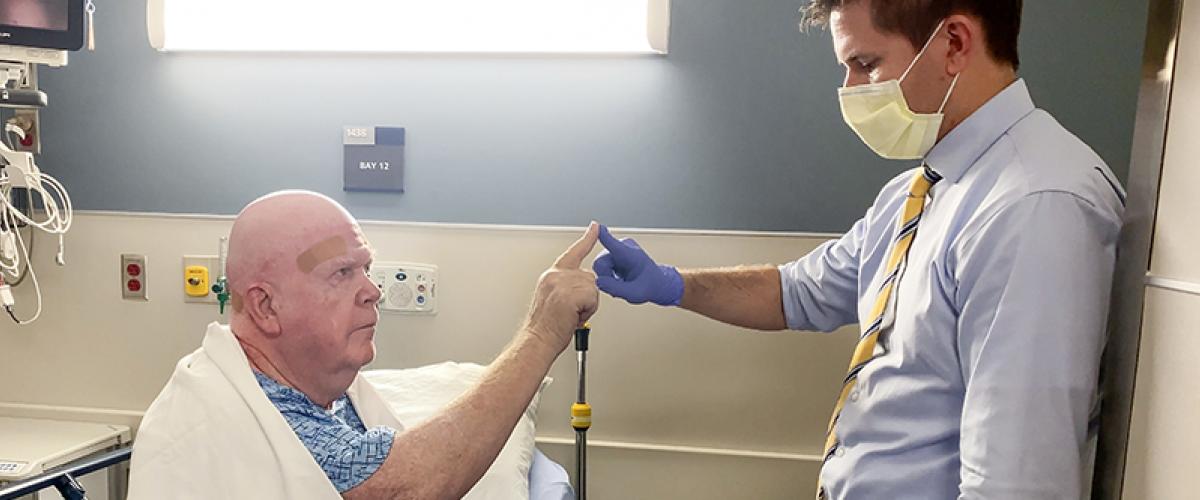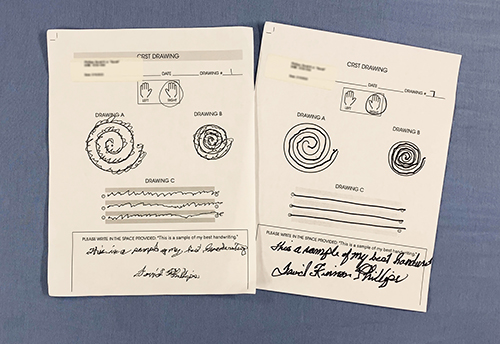Report: Movement Disorders

Function Restored, Non-Invasively: HIFU for Essential Tremor
Duke neurosurgeons have begun a non-invasive program to treat essential tremor using high intensity focused ultrasound (HIFU), an FDA-approved treatment that can reduce tremors by about 70%.
Focused ultrasound offers a next generation incisionless outpatient procedure for patients with essential tremor or Parkinson's disease who don't get relief from medications. HIFU relies on an MRI technique called diffusion tensor imaging to accurately target and direct sound waves to a tiny area of the brain that helps regulate movement.
Neurosurgeons Nandan Lad, MD, PhD, and Stephen Harward, MD, PhD, and team recently treated the first patient at Duke, with remarkable results. Lad says the procedure has been refined over the past few years.
Patients usually return home the same day. “With no incisions or implants, there is little to no risk of infection,” said Harward.
“There’s a focused ultrasound machine that is tailored for delivering 1,000 beams of ultrasound energy to a very specific target in that tremor circuit,” said Lad. “When we disconnect that tremor circuit, the tremor stops.”

Asleep Deep Brain Stimulation for Movement Disorders
Deep brain stimulation surgery has been used to treat movement disorders for more than 20 years. Typically, movement disorders DBS has been performed with the patient awake during brain electrode placement, to test positioning of the electrode. However, recent “asleep DBS” techniques using interventional MRI now allow precise electrode placement, such that the procedure can be performed without awake testing.
Duke neurosurgeon Derek Southwell, MD, PhD, uses the asleep procedure, and has performed essentially all the interventional MRI-guided DBS placements in North Carolina.
“Asleep DBS procedures minimize patient discomfort, while providing approximately equivalent surgical outcomes,” said Southwell.
Asleep DBS also allows surgeons to provide the treatment to a broader range of patients, including patients with dystonia, a condition that, in some cases, involve body postures and movements that make it very difficult for the patient to be awake and positioned for surgery.
Recently, Duke has been treating an increasing number of dystonia patients with asleep DBS. In 2023 Duke was recognized as the country’s second Center of Excellence for Dystonia by the Tyler’s Hope for a Cure Foundation.
All Chapters
Home / Brain / Epilepsy / Cerebrovascular & Skull Base / Pediatric / Chronic Pain / Trauma / Movement Disorders / Brain & Spine Metastasis / Spine / Global / Residency / Top Papers
